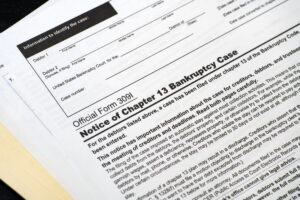It happens all the time. Someone will come in for their free consultation, thinking they need to file bankruptcy right away. After spending an hour or more with them and going over their finances, I’ll tell them that I don’t think bankruptcy is their best option. Sometimes, it’s because they’re judgment proof. You might have heard the term before. Being judgment proof means that, even if a creditor gets a judgment against you, he isn’t going to be able to collect anything. This can be because you don’t have any possessions, are unemployed, or your assets are protected by laws that prevent creditors from getting them, such as retirement accounts.
Usually, being judgment proof involves a combination of more than one of these factors. If someone doesn’t own any property but is employed, then bankruptcy might be the only option he has to prevent his wages or bank account from being garnished. As soon as a creditor gets judgment and knows where you work, it is going to ask the court for a writ of garnishment. In Colorado, this will require your employer to deduct 25% of your take home pay to go toward the debt you owe. A creditor can also garnish your bank account, which will allow it to take all of the funds in your bank account that are in it on the day it serves the bank with the garnishment.
Before you decide that you don’t need to file bankruptcy, consider setting up a free consultation with a Colorado bankruptcy attorney and find out just what your options are.



